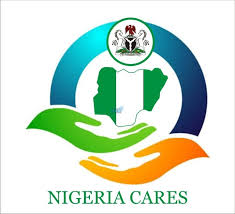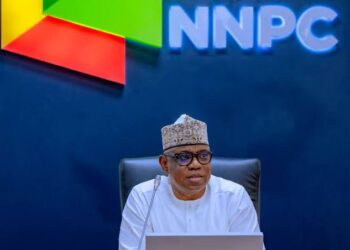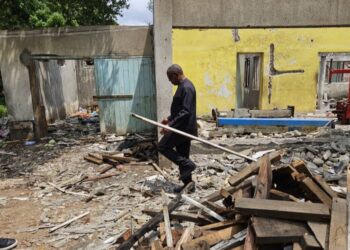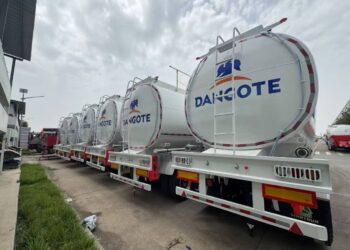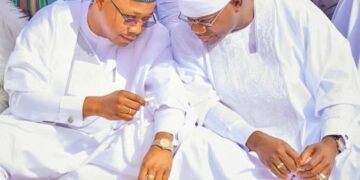The Nigeria Community Action for Resilience and Economic Stimulus (NG-CARES) has made significant strides in its mission to uplift millions of Nigerians from poverty, with over nine million people benefiting from the initiative thus far. This was disclosed by the national coordinator of NG-CARES, Abdulkarim Obaje, during the fifth Zonal Peer Learning and Experience Sharing Event, held in Akure.
Mr. Obaje highlighted the remarkable impact the initiative has had on Nigeria’s socio-economic landscape. He expressed optimism that NG-CARES is on track to eradicate poverty and bring about widespread positive change across the country.
According to him, “The number of beneficiaries of the intervention is well over 9 million. NG-CARES is poised to assist the state and federal governments to eradicate poverty in Nigeria. So, the programme has been restructured in terms of scope to cover more vulnerable Nigerians. And it has done very, very well.”
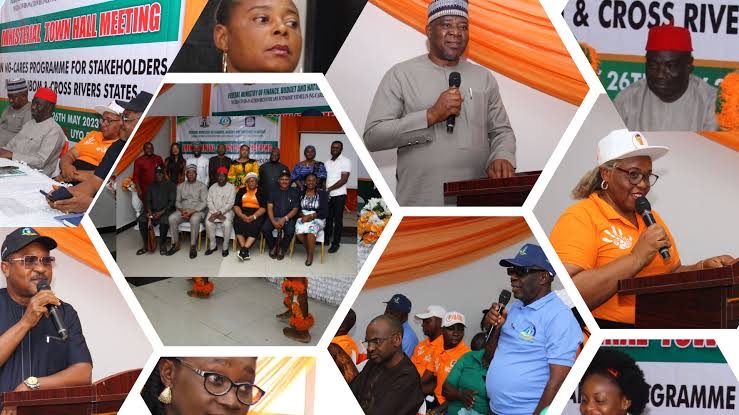
This expansion of the programme has prompted a growing demand for additional funding from state governors. They have urged the World Bank, through the federal government, to provide more financial support to ensure the programme continues to benefit more Nigerians.
This request was met with approval, as Mr. Obaje noted, “The indication of how well it has done is the fact that state governors are requesting the World Bank, through the federal government, to give additional financing, which has also been approved to the tune of $500 million.”
The NG-CARES coordinator explained that the programme is actively engaging with communities across various states, gathering feedback from beneficiaries who have shared positive testimonies about how the initiative has impacted their lives. He stated that the purpose of the learning event was to share these experiences and foster a culture of continuous improvement.
“We are moving from state to state on a zonal basis, and we are also interacting with beneficiaries. Many of the beneficiaries are giving us testimonies of how the NG-CARES programme has impacted them. So the purpose of this learning event, as has been repeatedly stated, is to share learning experiences,” he said.
Mr. Obaje also praised the state governments for their significant financial commitment to the programme, revealing that over N150 billion has been invested by various state administrations to ensure its success. This partnership between the federal and state governments has been instrumental in making NG-CARES a powerful tool in the fight against poverty.
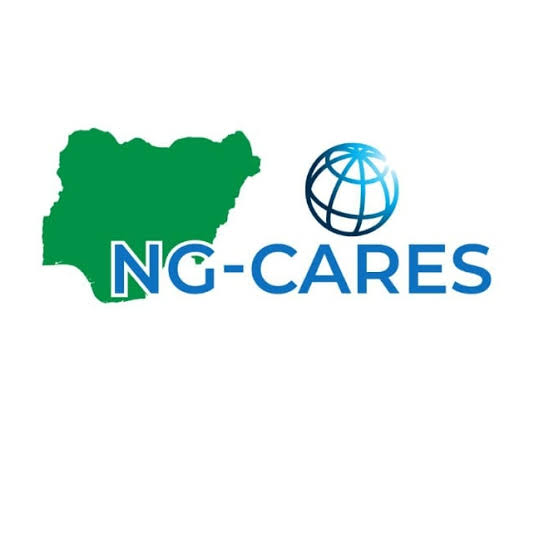
Lire Ersado, the task team leader for NG-CARES at the World Bank, provided further insight into the scale and success of the programme. He revealed that the World Bank had invested $750 million in the project, which has positively impacted the lives of millions of Nigerians.
Mr. Ersado explained that the first phase of the initiative is set to conclude by December, with the total number of direct and indirect beneficiaries expected to reach 30 million by then.
According to him, the programme has been particularly beneficial for Nigerian farmers, helping them increase their productivity and thereby contributing to the country’s overall agricultural output.
Mr. Ersado emphasized that the second phase of NG-CARES is already on the horizon, with an additional $500 million in funding from the World Bank secured for the next phase. He also reassured the public that the programme is structured in a way that prevents political interference, ensuring that the funds and benefits reach those who need them most.
“The project has had a massive impact, especially on farmers. We’ve seen a significant rise in their productivity. Additionally, we are gearing up for the second phase, which will be supported by another $500 million from the World Bank,” Mr. Ersado stated. He also highlighted that the structure of the programme ensures that politicians are unable to hijack it for their own purposes.
Emmanuel Igbasan, the Commissioner for Budget and Economic Planning, further underscored the success of NG-CARES, praising its performance among other World Bank-supported interventions in Nigeria. He noted that despite the programme’s remarkable achievements, stakeholders must continue to push the initiative forward to reach even greater heights.
Mr. Igbasan called for continued collaboration between the federal government, the Nigeria Governors Forum, and the World Bank to ensure the sustainability of NG-CARES.
He remarked, “NG-CARES has performed exceptionally well, but we need to elevate the programme even further. The federal government and the Nigeria Governors Forum must work closely to deepen the collaboration with the World Bank for the continued success and sustainability of NG-CARES.”
The NG-CARES programme has clearly demonstrated its potential to bring about meaningful change in Nigeria, particularly for the country’s most vulnerable populations.
Through continued collaboration between state and federal governments, as well as ongoing support from the World Bank, the initiative promises to remain a powerful tool in Nigeria’s efforts to eradicate poverty and promote resilience among its citizens.


